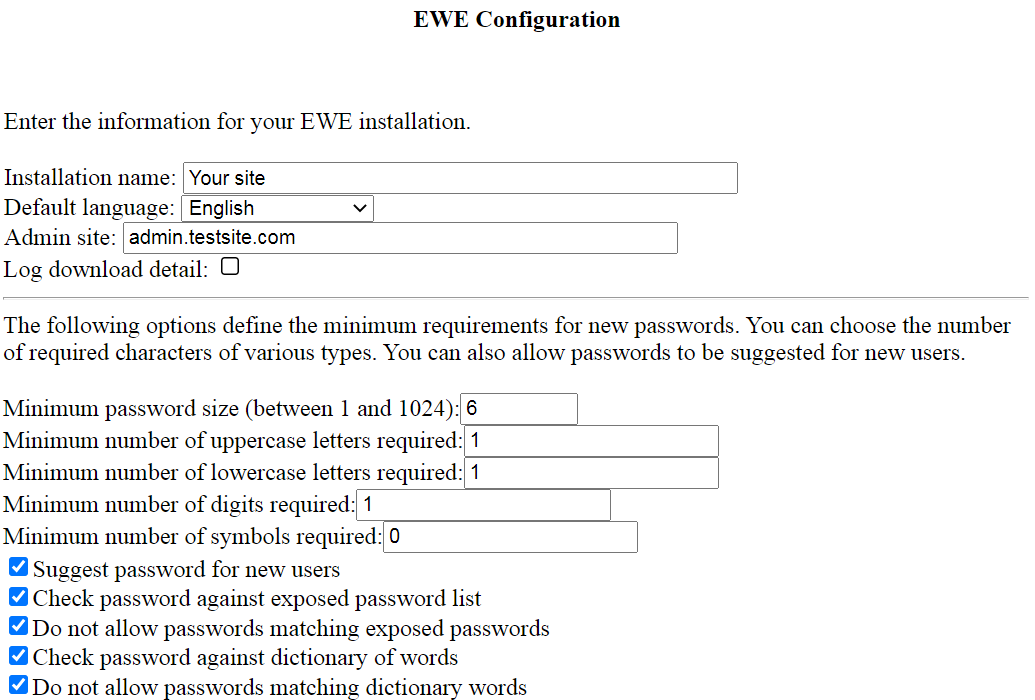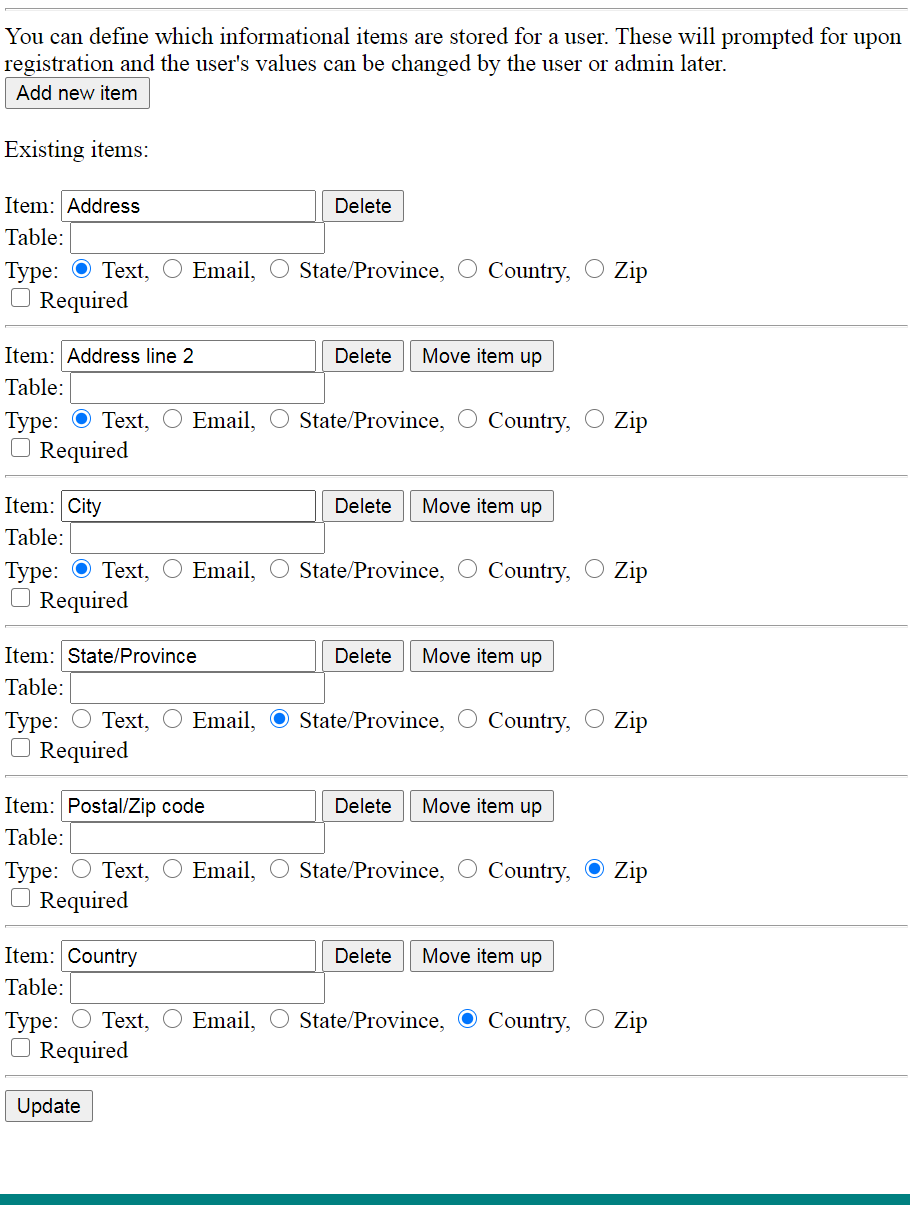

Installation name: This is a name for your server. It doesn't necessarily have anything to do with any site names.
Default language: The default is English, if this is blank.
Admin site: If set, this defines a url that will redirect to the EWE server admin/login page. If no admin site is specified, you must specify the url of the path to the admin.php file.
Log download detail: If set, the logging of downloads is kept in detail which allows for providing daily/weekly/monthly/etc download counts. This requires more database space. If not set, only the total number of downloads is kept. In that case, less database space is used, but no detail can be provided on download counts.
Minimum password size: This is the minimum number of characters required for a password when a user creates an account or changes an existing password. The more characters required, the more secure passwords are.
Minimum number of uppercase letters required: This is the minimum number of uppercase letters (A-Z) that must be in a password. For instance, if this is set to 2, then two uppercase letters must be in a password for it to be valid.
Minimum number of lowercase letters required: This is the minimum number of uppercase letters (a-z) that must be in a password. For instance, if this is set to 2, then two lowercase letters must be in a password for it to be valid.
Minimum number of digits required: This is the minimum number of numeric digits (0-9) that must be in a password. For instance, if this is set to 2, then two digits must be in a password for it to be valid.
Minimum number of symbols required: This is the minimum number of special symbols that must be in a password. Special symbols are any characters that are not digits (0-9), uppercase letters (A-Z), or lowercase letters (a-z). Example special symbols include: $, #, @, !, &, *
Suggest password for new users: If checked, a password will be suggested to new users during account registration.
Check password against exposed password list: If checked, new passwords will be compared to a list of known exposed passwords. If there is a match, the user will be warned. Note that password comparisons are done case-insensitive and zeroes (0) are compared to the letter "O".
Do not allow passwords matching exposed password list: If checked, new passwords will be compared to a list of known exposed passwords. If there is a match, the password will be rejected and the user will need to choose a new one. Note that password comparisons are done case-insensitive and zeroes (0) are compared to the letter "O".
Check password against dictionary of words: If checked, new passwords will be compared to a list of English words. If there is a match, the user will be warned. Note that password comparisons are done case-insensitive and zeroes (0) are compared to the letter "O".
Do not allow passwords matching dictionary words: If checked, new passwords will be compared to a list of English words. If there is a match, the password will be rejected and the user will need to choose a new one. Note that password comparisons are done case-insensitive and zeroes (0) are compared to the letter "O".

This section of the form allows you to define what additional information is gathered for users upon registration. Each item is listed and can be changed independently.
The "Add new item" button is used to add another item to the list.
These items can be changed for each item:
The "Update" button saves the current settings.